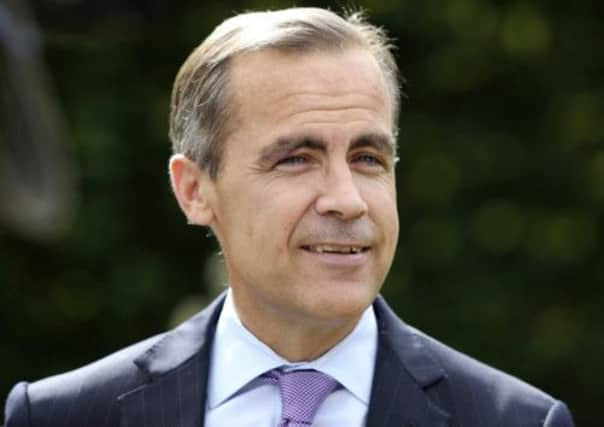Regions may suffer by linking interest to job figures


New Governor Mark Carney said the central bank plans to keep interest rates at a record low of 0.5 per cent until unemployment falls to seven per cent or below, which he views as unlikely for another three years.
PwC, one of the Big Four accountants, said average UK unemployment could reach the target while some regions are still struggling.
Advertisement
Hide AdAdvertisement
Hide AdIt is feared this could lead to increased borrowing costs for businesses and households in those areas hardest hit by the downturn.
Arif Ahmad, office senior partner at PwC in Leeds, welcomed the Governor’s message to encourage recovery and boost confidence, but highlighted the “distinct regional split” in the UK economy.
He said: “More than half of all new private sector jobs have come from London and the South East, with growth in those regions alone for 2013 forecast as 1.2 per cent and 1.4 per cent respectively.
“Overall, Yorkshire has fared well with predicted growth in line with the UK average for 2013 and total employment rising by 4.9 per cent over the last three years, above the UK average of 3 per cent and second only to London.
Advertisement
Hide AdAdvertisement
Hide Ad“But with other regions predicted to grow more slowly, UK average unemployment could hit the Bank’s target while some regions are still struggling to deliver confidence, investment and growth.”
A spokesman for the Bank of England declined to comment.
In his first press conference yesterday, Mr Carney said unemployment falling to seven per cent would mean more than 750,000 UK jobs are created, which, combined with rising wages, would represent “real improvements in the lives of people across the nation”.
He said the Bank looked at the range of measures in deciding to link rates guidance to unemployment.
He added unemployment was chosen as “people running businesses and individuals across the country understand the conditions under which the Monetary Policy Committee would begin to consider the withdrawal of stimulus”. Unemployment is running at 7.8 per cent, according to the latest official figures, and the Bank predicted it will remain above 7 per cent until at least the third quarter of 2016, as far as its current forecast goes.
Advertisement
Hide AdAdvertisement
Hide AdThis signals that rates will therefore remain at historic lows for at least another three years.
Mr Carney said: “Unemployment is still high. There are one million more people unemployed today than before this financial crisis and many who have jobs would like to work more than they currently can.”
The Bank warned it will break the link with unemployment if it fears inflation will be 2.5 per cent or higher in the next 18-24 months – or if there are worries about it climbing sharply in the medium term.
John Cridland, director general of the Confederation of British Industry, said greater interest rate certainty and clarity from the Bank should provide a shot in the arm for business and household confidence.
Advertisement
Hide AdAdvertisement
Hide AdHe added: “This is a pro-growth statement with an important eye to inflation risks, and unemployment is an appropriate measure of economic progress. Businesses will be buoyed by the support it should give to the economic recovery and be reassured by the built-in conditions around inflation and financial stability.”
Jonathan Oxley, chairman of the Yorkshire Shadow Monetary Policy Committee, said the new measure of forward guidance removes the short-term uncertainty that comes with borrowing and gives businesses greater confidence to invest with reduced fear of interest rate rises.
Law firm welcomes new guidance
YORKSHIRE’s biggest law firm welcomed the Bank of England’s new forward guidance policy.
Paul Firth, regional managing partner at Irwin Mitchell in Sheffield, said: “I suspect it will mean that many companies will bring forward projects, acquisitions and investment, as they are much more likely to do so with the comfort that their borrowing costs are not going to rise.”
Advertisement
Hide AdAdvertisement
Hide AdGovernor Mark Carney said a recovery in Britain’s economy was underway and appeared to be broadening but had a long way to go. “We’re not at escape velocity right now,” he said. “This remains the slowest recovery in output on record.”